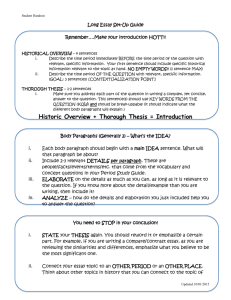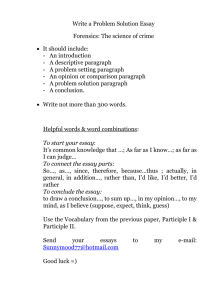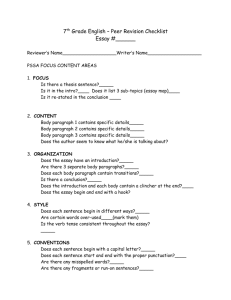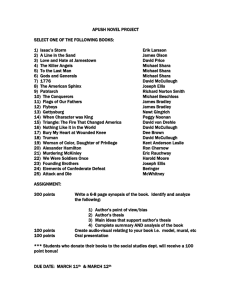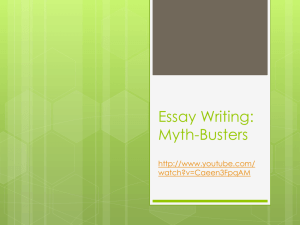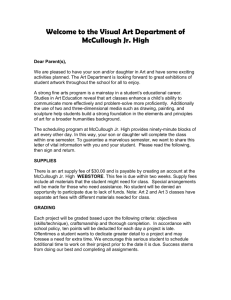Introductory Project
advertisement
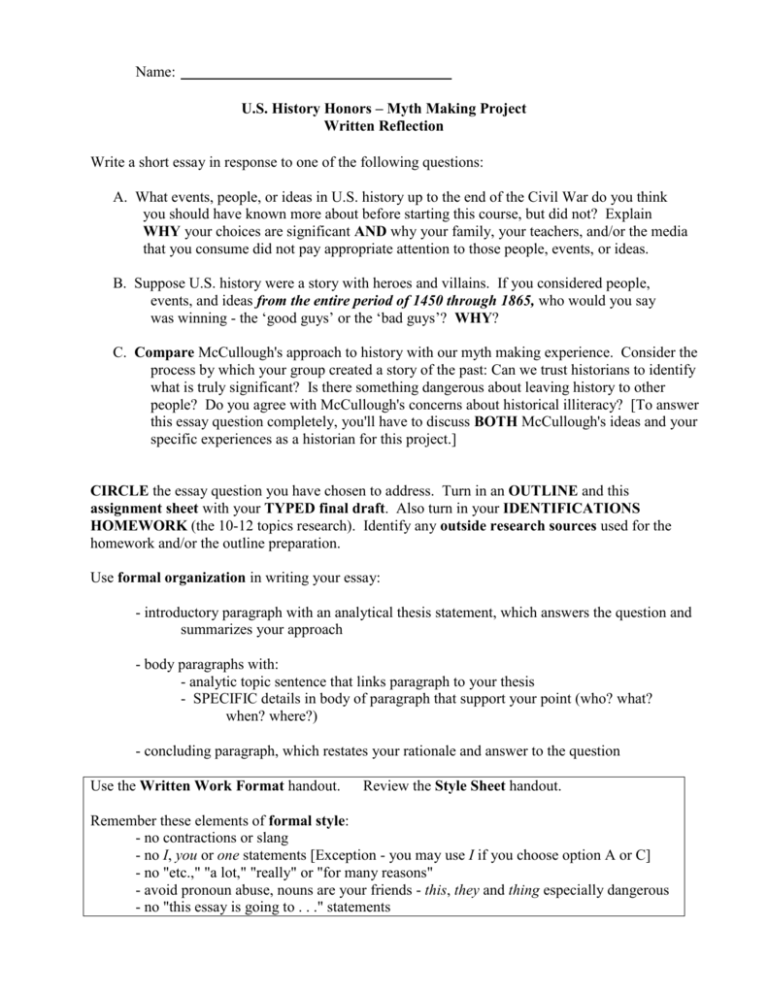
Name: U.S. History Honors – Myth Making Project Written Reflection Write a short essay in response to one of the following questions: A. What events, people, or ideas in U.S. history up to the end of the Civil War do you think you should have known more about before starting this course, but did not? Explain WHY your choices are significant AND why your family, your teachers, and/or the media that you consume did not pay appropriate attention to those people, events, or ideas. B. Suppose U.S. history were a story with heroes and villains. If you considered people, events, and ideas from the entire period of 1450 through 1865, who would you say was winning - the ‘good guys’ or the ‘bad guys’? WHY? C. Compare McCullough's approach to history with our myth making experience. Consider the process by which your group created a story of the past: Can we trust historians to identify what is truly significant? Is there something dangerous about leaving history to other people? Do you agree with McCullough's concerns about historical illiteracy? [To answer this essay question completely, you'll have to discuss BOTH McCullough's ideas and your specific experiences as a historian for this project.] CIRCLE the essay question you have chosen to address. Turn in an OUTLINE and this assignment sheet with your TYPED final draft. Also turn in your IDENTIFICATIONS HOMEWORK (the 10-12 topics research). Identify any outside research sources used for the homework and/or the outline preparation. Use formal organization in writing your essay: - introductory paragraph with an analytical thesis statement, which answers the question and summarizes your approach - body paragraphs with: - analytic topic sentence that links paragraph to your thesis - SPECIFIC details in body of paragraph that support your point (who? what? when? where?) - concluding paragraph, which restates your rationale and answer to the question Use the Written Work Format handout. Review the Style Sheet handout. Remember these elements of formal style: - no contractions or slang - no I, you or one statements [Exception - you may use I if you choose option A or C] - no "etc.," "a lot," "really" or "for many reasons" - avoid pronoun abuse, nouns are your friends - this, they and thing especially dangerous - no "this essay is going to . . ." statements


